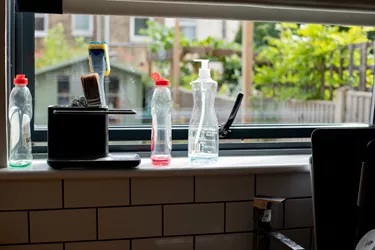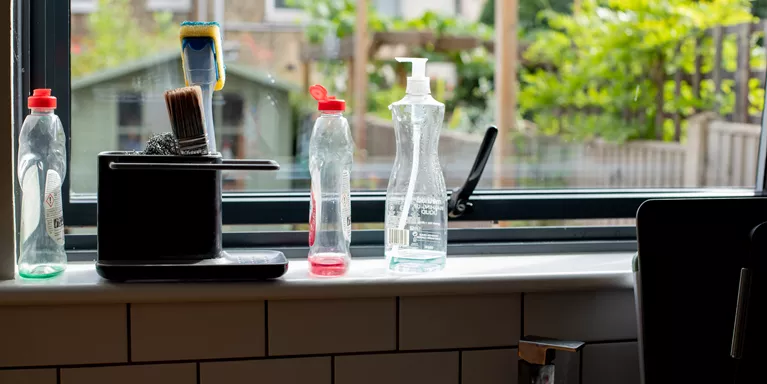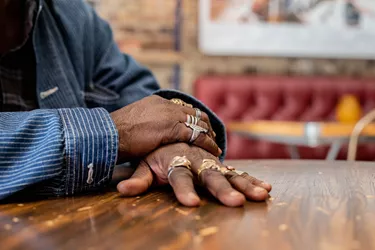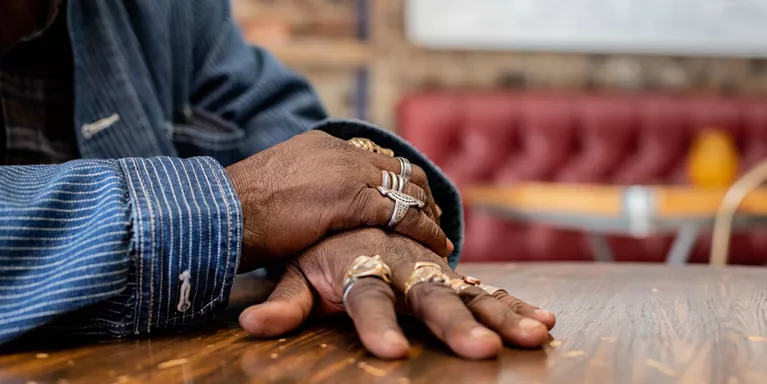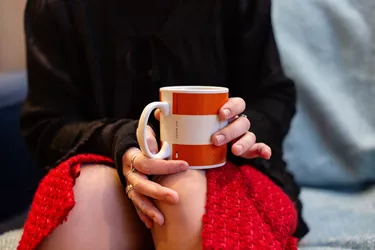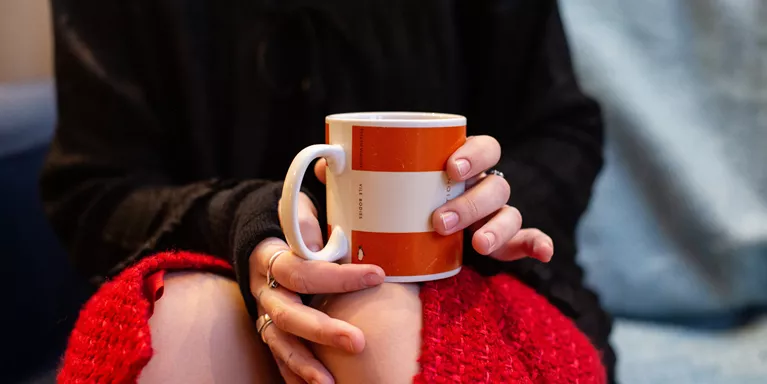I'm a hoarder...
Kate talks about her journey with hoarding: what triggers it, how she got support and how it led to her setting up a support group.
I am a hoarder. Hoarding is not the same as being untidy, because there is a difference: emotional attachment.
Recently I had a very emotional counselling session, which is a perfect example of my emotional attachment to things. I was trying to let go of a cardboard box - an empty box of chocolates. Yes, I like design, the box had aesthetic value to me. But it’s an attachment - an internal emotional attachment that will not allow me to let it go.
All week I had worked to reduce my attachment from a 10 to a seven (10 being that I keep it and one that I can let it go).
I had been physically looking at it, as well as opening and closing the cardboard box. I had reasoned with myself that taking photos would not help because I would be creating five objects not just one, whether it be digital or physical, if not both. During my counselling session I had reduced my attachment further to a five.
I felt like I was making progress. But when I put the empty cardboard box in the bin, I started to cry.
"I felt a sense of loss (over a cardboard box!), similar to the grief when you lose someone important."
I suppose my heart was not ready even though my mind was. I felt a murky cloud come over me. I didn’t understand why I was crying over a cardboard box, especially because nobody was forcing me to let go of it. I was in fact talking myself into letting go of the object.
It has taken me many years to come to this point. There are a variety of therapies that have together helped to support me and more importantly, allow me to understand why and how I became a hoarder, so I am able to change my responses.
20 years ago I left my family home and moved 250 miles to get away from a prolonged family trauma. I didn’t want to be around my family because of their opinions and behaviour.
"I needed to become my own person with my own values, but before I had a chance, I was in another controlling relationship."
Eventually I got myself onto The Freedom Programme, a domestic abuse support group, where I discovered that not everyone has to be disrespected like I was.
In 2010, I realised I was a hoarder. Ultimately, I tried to throw away things that I found on the floor, but couldn’t because of emotional attachment. Whether it be for practical, sentimental or aesthetic reasoning, I couldn’t do it. I started to research into the triggers and seek help. Since then I have learnt that hoarding can be triggered by a trauma. I knew that my trigger was a prolonged family experience that has led to me having social communication problems such as not answering the front door, phone calls, emails, including texting and social media.
It was only in 2013, through The Recovery Toolkit (a 12-week programme for women who have experienced domestic abuse), that I was shocked to realise that I was right in my belief. This led me to understand that my Dad was wrong for the way he behaved towards me.
There were other ideas and opinions out there that were different to the way my family behaved. This gave me hope. I knew I needed support on a psychological level to help me get through my own hoarding issues.
I was introduced to my local Mind by a friend because I believed that I had mental health issues which were not visible.
I may not have known an awful lot about hoarding back then, but the process has helped me to discover my other triggers such as hearing aggression and seeing evidence of anger. Although I still have social challenges, concerning trust, behaviour and friendship, I struggle with anxiety everyday living amongst people who have no concerns or worries about these issues.
"It is a constant internal fight that I live with that nobody sees."
Sometimes I get triggered because I have anxieties about society's expectations of what I should be doing or achieving. This, in essence, distracts me from my own issues of hoarding. And I then seek comfort in buying items that I think I will use, but never do – increasing my hoarding back home as I can’t let anything go.
Going back a couple of years, I wondered what other people felt about hoarding.
So I went online to find a charity or organisation that would maybe know how to tackle it from my perspective, as well as from a supporter’s. I clicked on a link that took me to Hoarding UK website. I hoped it would be a charity similar to Cancer Research UK, and I thought there might be lots of volunteers and support. I emailed…
The person from Hoarding UK informed me that they were involved in more than one hoarding support group based in London. Now I knew that there were support groups for hoarders! But the local organisation told me that there was not a support group for hoarders in Wales. I realised this would be my chance to setup and lead a group who would support hoarders like me. I was willing to put my personal hoarding issues on hold until I got this group up and running.
I have struggled, over a period of 10 years to get hoarding recognised as a mental health problem in Wales, and I believe that in years to come it will be. My group has been set up for a couple of years now and is still meeting up regularly for hoarders and the support around them.
I have written this not only to help me open up about my issues, but to inform you, that you are not alone. If I have been through similar issues to you and in the process of my recovery, helped others, then I believe you can find help and support that you need too.


Information and support
When you’re living with a mental health problem, or supporting someone who is, having access to the right information - about a condition, treatment options, or practical issues - is vital. Visit our information pages to find out more.
Share your story with others
Blogs and stories can show that people with mental health problems are cared about, understood and listened to. We can use it to challenge the status quo and change attitudes.










